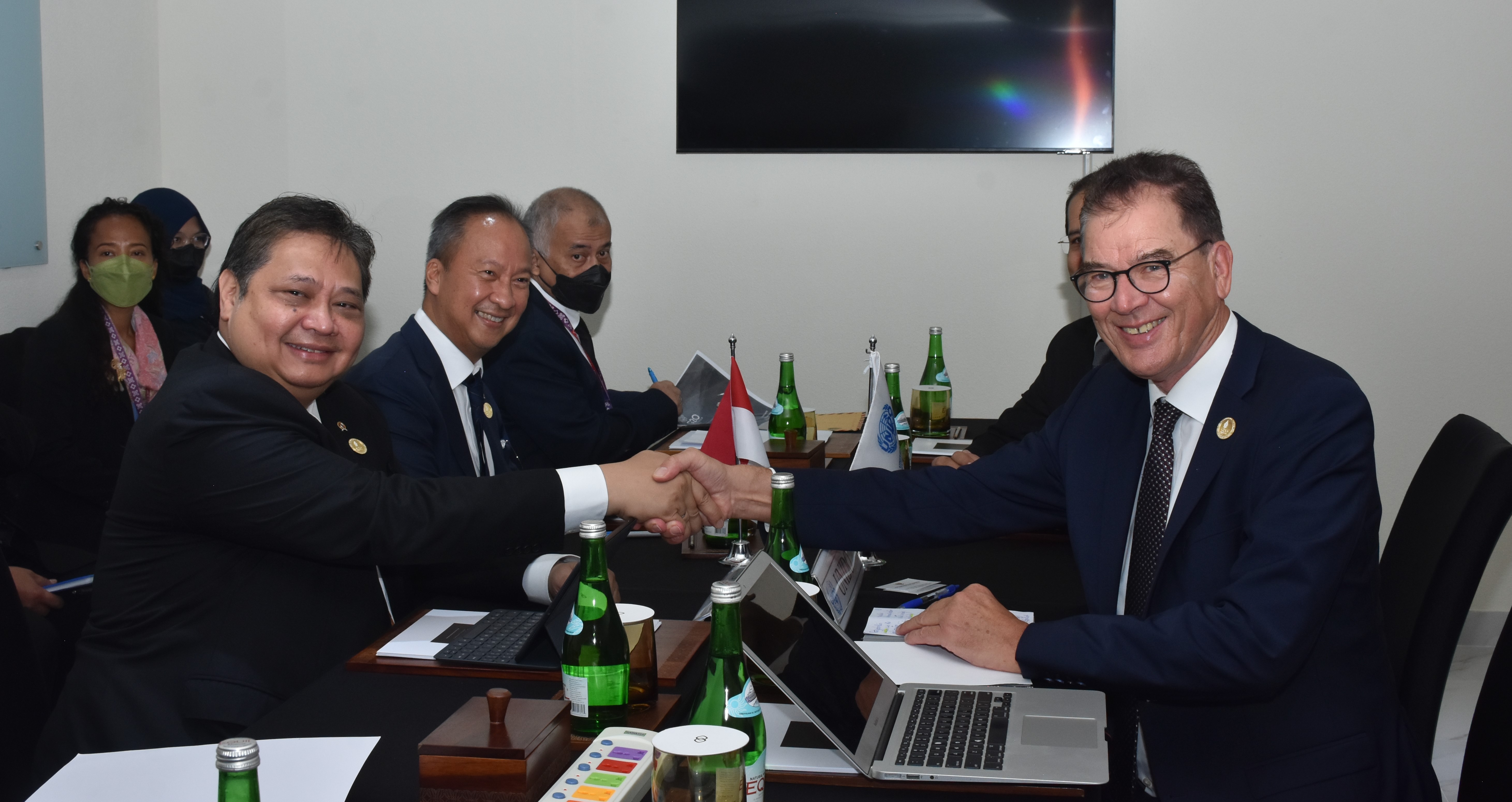UNIDO, Indonesia agree to deepen cooperation on sustainable energy, food security and market access
23 September 2022

BALI – On the margins of the G20 Trade, Investment and Industry Ministerial Meeting, UNIDO Director General Gerd Müller sat down for talks with Indonesia’s Coordinating Minister for Economic Affairs, Airlangga Hartarto, and Minister of Industry, Agus Gumiwang Kartasasmita.
During the discussion, Minister Airlangga explained that Indonesia is prioritizing a transition to renewable energy to power economic growth, including in the industrial sector. He mentioned the phasing out of coal-based power plants and several clean energy initiatives such as ammonia-coal co-firing, geothermal power plants, floating solar panels, and hydropower.
"We hope that UNIDO's support for Indonesia will continue to accelerate the transformation to green energy and the implementation of industry 4.0, as well as to increase the capacity of national industry so that Indonesia can be more competitive in the global market," said Airlangga.
UNIDO’s Country Programme for Indonesia focuses on four main areas, namely strengthening market access and industrial competitiveness, clean and sustainable energy, protecting the environment, and strengthening cooperation with a focus on innovation, digitalization and industry 4.0.
Director General Müller said, "UNIDO will continue to be committed to supporting Indonesia through the programmes that have been launched." He highlighted Indonesia’s central role in the fight against climate change and in protecting biodiversity, and agreed to expand UNIDO-Indonesia cooperation in sustainable energy, food security, and access to global markets.
Muller expressed his support for the Indonesian Presidency at the upcoming G20 Summit in November 2022, and also submitted a proposal for a discussion to start about the African Union joining as a G20 member, in the same way that the European Union is a member.
With 273 million people, Indonesia is the country with the fourth largest population. It is the largest economy in Southeast Asia, and the 10th largest economy in the world in terms of purchasing power parity. According to the World Bank, the country has made enormous gains in poverty reduction, cutting the poverty rate by more than half since 1999.